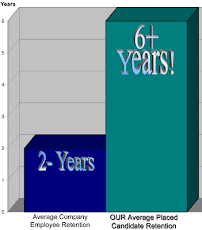
Economist Alan Beaulieu Projects 2010 Recovery
Here’s the tough news: the next six months (March-August) will be worse than the previous six months. And the good news, we should see the economic recovery begin around March 2010 based on the monthly trend in the U.S. Industrial Production Index.
This projection, was made by economist Alan Beaulieu of the Institute for Trend Research. The information Beaulieu conveyed was geared to help executives make the right business decisions based on a clear view of the future.
Many Main Street business owners will be oblivious to the recovery as it’s happening, says Beaulieu, and won’t recognize the recovery until three to six months after it has begun. Vistage members, armed with a reliable economic forecast and actionable advice, will be able to pull ahead of those businesses that recognize the recovery too late.
Following are highlights from Beaulieu’s three-hour presentation.
Economic Projections
Based on the movement of leading economic indicators:
• The recovery will begin around March 2010, and will be so mild that most Main Street businesses won’t trust that it’s a true recovery until we are three to six months into it.
• U.S. housing markets will reach a low in late 2009 or early 2010 when prices flatten out before rising again in 2011.
• Disinflation (a decrease in the rate of inflation) or deflation is likely to continue into 2010, while inflation returns in 2011-2012.
• Unemployment will peak in early 2010 above 9 percent nationally. Job growth should begin around September 2010.
• Credit conditions will improve somewhat in 2010, when we should see renewed lending at low interest rates.
• The value of the dollar against other currencies won’t change much from now through the end of the year.
Advice to Business Owners
Beaulieu recommends that business owners take the following action:
• The middle of 2010 will be a golden time to expand your operation. New and used equipment will be inexpensive, real estate will be inexpensive, interest rates will be low. Start planning your expansion now.
• Borrow as much money as you can in 2010, as conditions may not be as favorable in the years to follow.
• If you lease business space, renegotiate your contract as vacancy rates goes up later this year.
• Hire some of the exceptional talent that will be available through 2010.
• Stop activities that don’t create profit, such as a seminars, services or other things that lose money for your company.
• Eliminate products that aren’t profitable. Get rid of that which doesn’t serve your company.
• Find clients in these resilient sectors: energy, “green,” hotel/motel, water, healthcare, funeral services, alcohol, security, legal services, food distribution, water purification/distribution, electricity, natural gas distribution, education (community colleges in particular), pet products, and leisure.
• Look for clients or ways to sell your product in western Canada, Brazil, and Australia. These countries are positioned for strong future growth. Russia and China are not positioned for near-term growth.
• Review your competitive advantage. Define it and tout it.
• Lead with optimism. Be the chief cheerleader.
• Communicate your company’s future clearly.
• Exercise your courage, don’t just maintain the status quo. Take risks and be courageous.
• Celebrate victories, even small ones, with your people. Treat your best employees well or they will defect during the recovery.
• Monitor your cash position religiously and take all necessary actions to maintain a positive cash flow.
• Learn to compute your company’s “12/12 rate of change” so you can project where your revenues are going
Market Advice
There’s no huge stock market rebound on the other side of this downturn, only a long, slow climb out.
• People in their 20s and 30s should continue to put money in the market as it will have an eventual payoff.
• People within 10 years of retirement should go for safe fixed asset investments.
• Rather than buying broad-based mutual and index funds, focus on specific sectors such as alternative energy and healthcare, or companies you’re willing to invest in for the long term.
• In the post-2010 world, avoid bond funds as they will be under long-term negative pressure.
Housing Market
There is more negative housing activity to come, says Beaulieu.
• Housing prices will continue to decline, reaching a bottom around March 2010.
• Even though housing prices have a little more to fall, now through the end of 2009 is a once-in-a-lifetime opportunity to buy a house. Rarely do low interest rates align with low prices and the promise of a modest recovery two years off. There will not be a better time to buy real estate in our lives. Look for areas with strong demographics suited to an aging population.
• Home prices will begin to rise slightly in late 2010.
Foreign Markets
• Canada, Australia, and Brazil are best positioned for growth for years to come.
• China is no longer the low-cost manufacturer that it has been for the past decade. Factories are shutting down or moving to nearby countries with lower labor costs. Look for increased civil unrest and a long recession in China.
As a final thought Beaulieu reminds us: “It took only two years to crumble to where we are today, but it will take us many more years to get back to that peak. It was a bubble and you don’t recreate a bubble quickly, nor do we want to.”














No comments:
Post a Comment